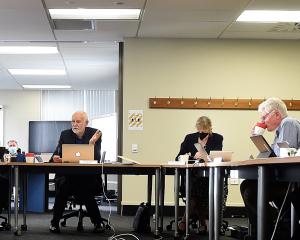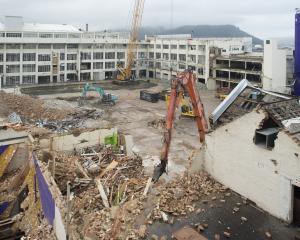The former GP, who had a double mastectomy, runs a cancer survivorship programme for the Otago Southland Cancer Society, and lectures at the Dunedin School of Medicine.
She is urging women to be assertive and take an active interest in their medical care.
Dunedin's medical community was coming to terms with the news a specimen switch at Southern Community Laboratories (SCL) led to an unnecessary mastectomy earlier this year, she said.
"We're feeling gutted that this sort of thing can happen."
Dr Walthert feared it would affect women's confidence in breast-care services.
It could affect the numbers using the Southern District Health Board's breast-screening programme, even though the mistake did not involve the programme.
The women concerned are reported to have undergone diagnostic investigations after experiencing symptoms. Their biopsy samples were inadvertently switched, resulting in an unnecessary mastectomy for one woman and a false clearance for the other.
Women had "every right" to ask for a second opinion of a test read, and this was not usually difficult to obtain, although in the case of this error it might not have made a difference because the specimen had been switched.
Requesting fresh diagnostic procedures such as another biopsy was at the discretion of clinicians, but women had the right to ask for them. They could also ask for a second lab to test a specimen.
Dr Walthert said that rather than being frightened, women should be assertive during the screening and diagnosis process.
"I would hope that rather than [not getting mammograms] they actually become more vocal, a part of their own medical care.
"I'm a great one for saying to women: 'you're a part of this, too; you're not just this passive person at the end of the mammogram'."
She suggested women ask questions all the way through, including checking identification labels on specimens and requesting a second opinion from another pathologist.
"Don't stay away - come. But you're anxious, talk about that anxiety with the people who are doing the screen."
GPs and other clinicians also played a role, by comparing the specimen result with symptoms.
People should not be "blinded" by a single test result, she warned.
Women often wrongly feared a delayed mastectomy meant the cancer would spread.
"[The cancer growth] is a very slow process ... a few weeks waiting and thinking and looking at other options isn't going to make it more dangerous."
Dr Walthert said she admired SCL for apologising and acknowledging its mistake.
She agreed it was possible the Southern DHB's investigation would reveal SCL's mistake should have been picked up by a clinical review before the mastectomy was carried out.
"I'm sure that will be part of their fishbone analysis they'll be doing."
A "fishbone analysis" involved looking at all parts of the relevant system to identify cause and effect, rather than focusing on blame.
After a mistake, patients were eager to know systems had been improved to ensure it did not happen to anyone else.
"Patients are incredibly forgiving and understanding," Dr Walthert said. They greatly appreciated medical professionals being upfront and honest.
It was entirely understandable for victims of life-changing mistakes to blame people and feel extremely angry, she said.
Dr Walthert's medical school work included teaching students about dealing with medical errors and their aftermath. Medical students received much more training in this area than previously, and the profession as a whole was better at dealing with medical error issues.
"These days we are much more likely to apologise up front and be incredibly human about it."
Meanwhile, the Southern DHB confirmed yesterday the mastectomy error had come before board members at their last two meetings. The matter was considered in the public-excluded session of the board's April and May meetings.
The spokesman was unable to say if the matter was discussed in detail. He declined to give further details.
It is normal for board members to be kept informed of "sentinel" event investigations pertaining to medical mistakes involving serious injury or death.
Late last week, the board said its investigation would take up to a fortnight to complete.
Last month, the Southern DHB's breast-screening programme, BreastScreen HealthCare, was cleared by a Ministry of Health investigation after an audit initially raised fears the service had an unacceptable rate of false negative readings.
Advertisement












